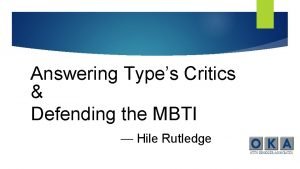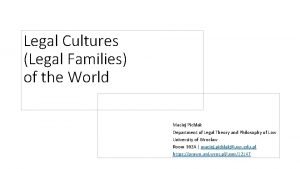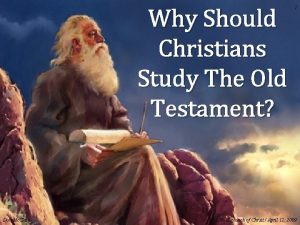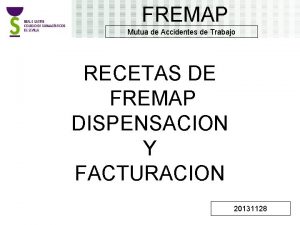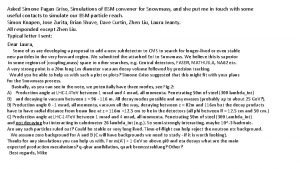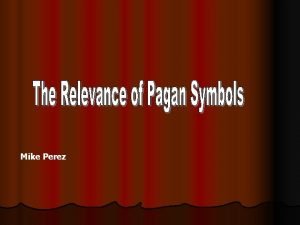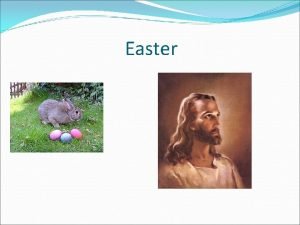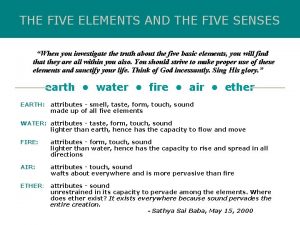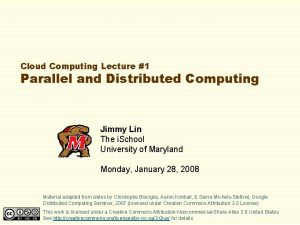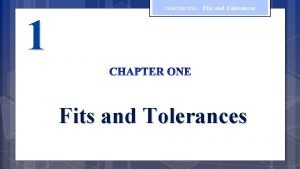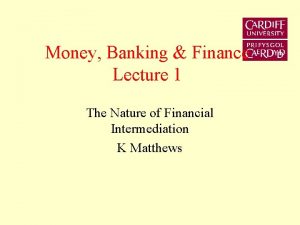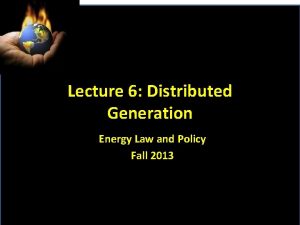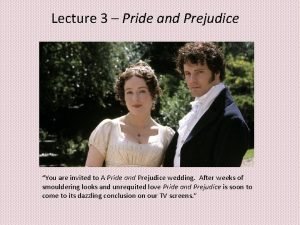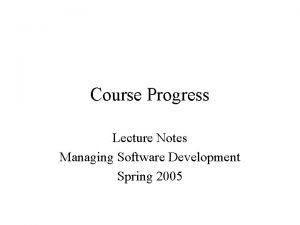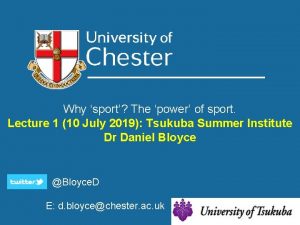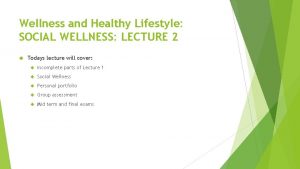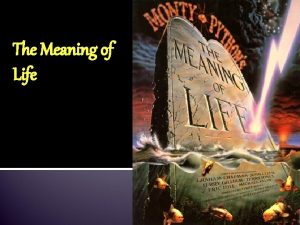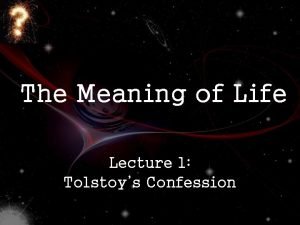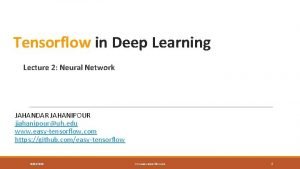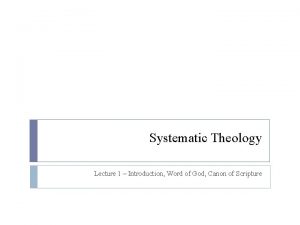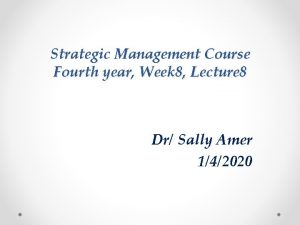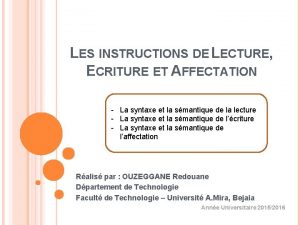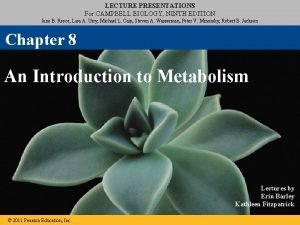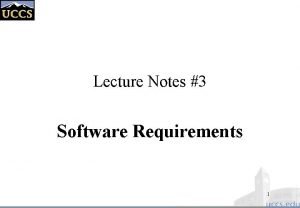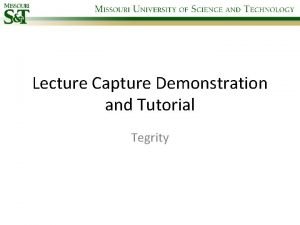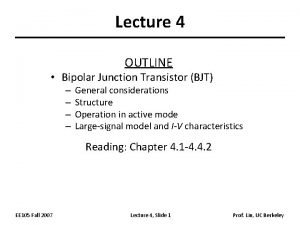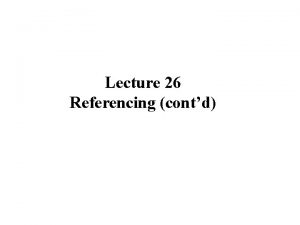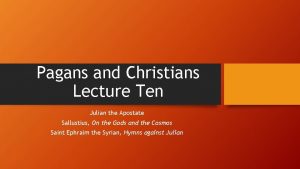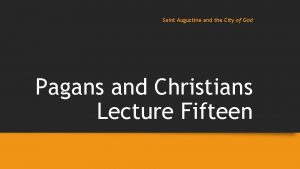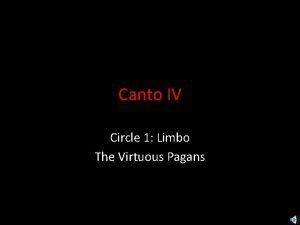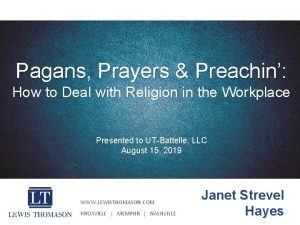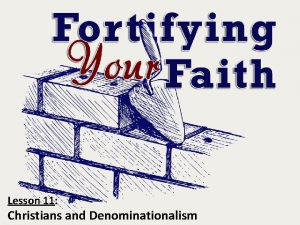PAGANS AND CHRISTIANS LECTURE FIVE Pagan Critics and























































































- Slides: 87

PAGANS AND CHRISTIANS LECTURE FIVE Pagan Critics and Christian Apologists

GALEN (129 — C. 210 AD)

MARCUS AURELIUS (121 -180 AD)

SANCTUARY OF ASCLEPIUS

GALEN ON HIPPOCRATES’ ANATOMY Therefore, physicians of the kind mentioned are comparable to Moses, who gave laws to the Jewish people, for he wrote his books without adducing proofs, he merely said: God has ordered, or, God has said.

GALEN ON THE USEFULNESS OF THE PARTS OF THE BODY Did our demiurge simply enjoin this hair to preserve its length always equal, and does it strictly observe this order either from fear of its master's command, or from reverence for the god who gave this order, or is it because it itself believes it better to do this? Is not this Moses' way of treating Nature and is it not superior to that of Epicurus? The best way, of course, is to follow neither of these but to maintain like Moses the principle of the demiurge as the origin of every created thing, while adding the material principle to it. For our demiurge created it to preserve a constant length, because this was better. When he had determined to make it so, he set under part of it a hard body as a kind of cartilage, and under another part a hard skin attached to the cartilage through the eyebrows. For it was certainly not sufficient merely to will their becoming such: it would not have been possible for him to make a man out of a stone in an instant, by simply wishing so.

GALEN ON THE USEFULNESS OF THE PARTS OF THE BODY It is precisely (καὶ) this point in which our own opinion and that of Plato and of the other Greeks who follow the right method in natural science differs from the position taken up by Moses. For the latter it seems enough to say that God simply willed the arrangement of matter and it was presently arranged in due order; for he believes everything to be possible with God, even should He wish to make a bull or a horse out of ashes. We however do not hold this; we say that certain things are impossible by nature and that God does not even attempt such things at all but that he chooses the best out of the possibilities of becoming. We say therefore that since it was better that the eyelashes should always be equal in length and number, it was not that He just willed and they were instantly there; for even if He should just will numberless times, they would never come into being in this manner out of a soft skin; and, in particular, it was altogether impossible for them to stand erect unless fixed on something hard. We say thus that God is the cause both of the choice of the best in the products of creation themselves and of the selection of the matter. For since it was required, first that the eyelashes should stand erect and secondly that they should be kept equal in length and number, He planted them firmly in a cartilaginous body. If He had planted them in a soft and fleshy substance He would have suffered a worse failure not only than Moses but also than a bad general who plants a wall or a camp in marshy ground.

GALEN ON THE PULSE One might more easily teach novelties to the followers of Moses and Christ than to the physicians and philosophers who cling fast to their schools.

GALEN ON THE PULSE . . . in order that one should not at the very beginning, as if one had come into the school of Moses and Christ, hear talk of undemonstrated laws, and that where it is least appropriate.

GALEN ON THE PRIME MOVER If I had seen people who taught their disciples in the same way as the disciples of Moses and Christ were taught — that is, who ordered them to accept everything on trust — I would not have given you any definitions.

GALEN SUMMARY OF PLATONIC DIALOGUES From this we may infer that the people called Christians derive their faith from signs and miracles. Also, sometimes, they show such behavior as is adopted by philosophers; for fearlessness of death and the hereafter is something we witness in them every day. The same is true of abstention from sexual intercourse. Some of them, both men and women, go their whole life without sexual intercourse. There among them those who possess such a measure of self-control with regard to food and drink and who are so bent on justice, that they do not fall short of those who profess philosophy in truth.

CELSUS (LATE SECOND CENTURY AD)

BOYD, G. A. , AND P. R. EDDY, THE JESUS LEGEND, PG. 170 -171 Biblical scholars Paul Eddy and Gregory Boyd provide a concise but detailed analysis of the rabbinic literature’s value to a study of the historical life of Christ. They find three considerations that lead them to conclude the rabbinic tradition is not valuable for this study.

BOYD, G. A. , AND P. R. EDDY, THE JESUS LEGEND, PG. 170 -171 “First, the earliest rabbinic sources date from the late second to the third century and the most celebrated material even later than this. This alone raises questions about the historical value of this material. To illustrate, we possess a rabbinic account of Jesus’s life (Toledot Yeshu) that claims, among other things, that Jesus was born out of wedlock, grew up acting disrespectful toward Jewish leaders, and masatered magical practices to gain a following. It also claims that Jesus’s body was found after His death. Were this a first- or even second-century document, it might be of historical interest. However, the Toledot Yeshu was compiled in the fifth century. ”

BOYD, G. A. , AND P. R. EDDY, THE JESUS LEGEND, PG. 170 -171 “True, Toledot Yeshu and other Jewish literature contain traditions that predate them, but the relatively late date and clear polemical focus of Toledot Yeshu and other rabbinic references to Jesus render them suspect as historical sources. They tell us something about Jewish polemics against the early Christian movement, but nothing reliably about Jesus. ”

EVANS, C. (1994) “JESUS IN NON-CHRISTIAN SOURCES, ” IN STUDYING THE HISTORICAL JESUS, PG. 450 “[The Toledot Yeshu] is nothing more than a late collection of traditions, from Christian as well as from Jewish sources. Besides the obvious anachronisms, the account is full of fictions assembled for the primary purpose of anti-Christian polemic and propaganda. The work has nothing to offer serious Jesus research. ”

VAN VOORST, R. (2000) JESUS OUTSIDE THE NEW TESTAMENT, PG. 450 “Because of its medieval date, its lack of a fixed form, its popular orientation, and its highly polemical purpose, the Toledot Yeshu is most unlikely to give us any independent, reliable information about Jesus. It may contain a few older traditions from ancient Jewish polemic against Christians, but we learn nothing new or significant from it. Scholarly consensus is correct to discount it as a reliable source for the historical Jesus. ”

BOYD, G. A. , AND P. R. EDDY, THE JESUS LEGEND, PG. 171 “In those instances where it seems certain that an author is referring to Jesus, there are textual indications that the material is dependent upon earlier Christian claims and/or anti-Christian propaganda. For example, Jesus is presented as being illegitimately born of a tryst between Mary and a Roman soldier named Panthera. It is significant that Panthera appears to be a play on the Greek word for virgin (parthenos). Hence, many scholars conclude that this story is nothing more than a contrived attack on the Christian claim that Jesus was born of a virgin. ”

TIBERIUS JULIUS ABDES PANTERA

TIBERIUS JULIUS ABDES PANTERA • The name Pantera is Greek, although it appears in Latin in the inscription. It was perhaps his last name, and means panther. The names Tiberius Julius are acquired names and were probably given to him in recognition of serving in the Roman army as he obtained Roman citizenship. The name Abdes means "servant of God" (Latinate form of Aramaic Ebed) and suggests that Pantera had a Semitic or even Jewish background. Pantera was from Sidonia, which is identified with Sidon in Phoenicia, and joined the Cohors I Sagittariorum (first cohort of archers). • Pantera is not an unusual name, and its use goes back at least to the 2 nd century BC. Prior to the end of the 19 th century, at various times in history scholars had hypothesized that the name Pantera was an uncommon or even a fabricated name, but in 1891 French archeologist C. S. Clermont. Ganneau showed that it was a name that was in use in Judea by other people, and in 1910 Adolf Deissmann later showed with certainty that it was a common name at the time, especially among Roman soldiers.

TIBERIUS JULIUS ABDES PANTERA Adolf Deissmann (1910) Light From the Ancient East Or The New Testament Illustrated by Recently Discovered Texts of the Graeco Roman World.

TIBERIUS JULIUS ABDES PANTERA Tib(erius) Iul(ius) Abdes Pantera Tiberius Julius Abdes Pantera Sidonia ann(orum) LXII from Sidon, aged 62 years stipen(diorum) XXXX miles exs(ignifer? ) served 40 years, former standard bearer(? ) coh(orte) I sagittariorum of the first cohort of archers h(ic) s(itus) e(st) lies here

TWO OF CELSUS’S MAIN CRITICISMS 1) Christ performed His miracles through magic 2) The testimony of the Resurrection is untrustworthy because it relies of female witnesses

BOYD, G. A. , AND P. R. EDDY, THE JESUS LEGEND, PG. 171 “While the rabbinic material gives us insight into how some Jews reacted polemically against the Jesus tradition, it does not represent early, independent, or historically reliable information about Jesus. The only significant point about this literature is that, though it sometimes credits Jesus’s power to sorcery, magic, or the devil himself, it never denies that Jesus performed miracles — let alone that Jesus existed. ”

BULTMANN, R. (1934) JESUS AND THE WORLD, PG. 173 “But there can be no doubt that Jesus did the kind of deeds which were miracles to His mind and to the minds of His contemporaries, that is, deeds which were attributed to a supernatural, divine cause; undoubtedly He healed the sick and cast out demons. ”

JEREMIAS, J. (1971) NEW TESTAMENT THEOLOGY, PG. 92 “Thus even when strict critical standards have been applied to the miracle stories, a demonstrably historical nucleus remains. Jesus performed healings which astonished His contemporaries. ”

BLACKBURN, B. (1998) “THE MIRACLES OF JESUS, ” IN STUDYING THE HISTORICAL JESUS, PGS. 362, 392 “That Jesus acted as an exorcist and healer can easily be described as the consensus of the modern period…Scholars almost unanimously agree that this Galilean performed both cures and exorcisms, the success of which led both to a devoted following and opponents who charged Him with sorcery. ”

KEENER, C. (2011) MIRACLES: THE CREDIBILITY OF THE NEW TESTAMENT ACCOUNTS, VOL. 1, PG. 19, 23. “There is a general consensus among scholars of early Christianity that Jesus was a miracle worker…Most scholars today working on the subject thus accept the claim that Jesus was a healer and an exorcist. ”

MARK 3: 22 And the scribes which came down from Jerusalem said, He hath Beelzebub, and by the prince of the devils casteth he out devils. (cf. also Matt 9: 34; 10: 25; 12: 24; Luke 11: 15)

2 KINGS 1: 2 Now Ahaziah had fallen through the lattice of his upper room in Samaria and injured himself. So he sent messengers, saying to them, “Go and consult Baal-Zebub, the god of Ekron, to see if I will recoverfrom this injury. ”

FLAVIUS JOSEPHU S (37 -100 AD)

JEWISH ANTIQUITIES 18. 63 At this time there appeared Jesus, a wise man, if it be lawful to call him a man; for he was a doer of startling deeds, a teacher of such men as receive the truth with pleasure. He drew over to him both many of the Jews and many of the Gentiles. He was the Messiah. And when Pilate, at the suggestion of the principal men amongst us, had condemned him to the cross, those that loved him at the first did not forsake him; for he appeared to them alive again the third day; as the divine prophets had foretold these and ten thousand other wonderful things concerning him. And the tribe of Christians, so named from him, are not extinct at this day.


ACTS 2: 22 Ye men of Israel, hear these words; Jesus of Nazareth, a Man approved of God among you by miracles and wonders and signs, which God did by Him in the midst of you, as ye yourselves also know.

TWELFTREE, G. T. (1999) JESUS THE MIRACLE WORKER: A HISTORICAL & THEOLOGICAL STUDY, PGS. 254 -255. “Although this material does not give us contemporary evidence of Jesus being a miracle worker, it does give us (importantly) independent and indirect evidence in that it shows that Jesus was (or at least had come to be) remembered as a sorcererhealer…Though the rabbinic material is late, it is valuable in that it does not appear to be dependent on Christian traditions. ”

KEENER, C. (2011) MIRACLES: THE CREDIBILITY OF THE NEW TESTAMENT ACCOUNTS, VOL. 1, PGS. 19, 23. “So central are miracle reports to the four Gospels that one could remove them only if one regarded the Gospels as preserving barely any genuine information about Jesus…Very few critics would deny the presence of any miracles in the earliest material about Jesus. ”

TWELFTREE, G. T. (1999) JESUS THE MIRACLE WORKER: A HISTORICAL & THEOLOGICAL STUDY, PG. 256. “The witness of various literary forms in the Gospels also gives support to the view that Jesus performed miracles. There are biographical sayings, parables, a dispute story, sayings of instructions and commissionings, as well as the stories of exorcism, healing raising the dead and so-called nature miracles. ”

THE EARLY CHURCH HAD NO MOTIVE TO INVENT THE IDEA THAT CHRIST PERFORMED MIRACLES

STANTON, G. (2002) THE GOSPELS AND JESUS, PG. 235. “In antiquity miracles were not accepted without question. Greco-Roman writers were often reluctant to ascribe miraculous events to the gods, and offered alternative explanations. Some writers were openly skeptical about miracles (e. g. Epicurus, Lucretius, and Lucian). So it is a mistake to write off the miracles of Jesus as the result of the naively and gullibility of people in the ancient world. ”

HARVEY, A. E. (1982) JESUS AND THE CONSTRAINTS OF HISTORY, PG. 103. “If we take the period of four hundred years stretching from two hundred years before to two hundred years after the birth of Christ, the number of miracles recorded which are remotely comparable with those of Jesus is astonishingly small. On the pagan side, there is little to report apart from the records of cures at healing shrines, which were certainly quite frequent, but are a rather different phenomenon from cures performed by an individual healer. Indeed it is significant that later Christian fathers, when seeking miracle workers with whom to compare or contrast Jesus, had to have recourse to remote and by now almost legendary figures of the past such as Pythagoras or Empedocles. ”

APOLLONIUS OF TYANA (15 -100 AD)

BIRD, M. F. (2014) “OF GODS, ANGELS, AND MEN, ” IN HOW GOD BECAME JESUS, PG. 26 “In the case of the similarities between the gospel accounts of Jesus and Philostratus’ biography of Apollonius of Tyana, written at least a hundred years after the Gospels, it seems clear to me that Philostratus’ biography has been written as a polemical parody of the Gospels, a type of refutation by imitation. Apollonius could be held up as a pagan antitype to Jesus. If so, there were occasions when pagans modeled stories from Christian sources rather than vice-versa. ”

KEENER, C. (2011) MIRACLES: THE CREDIBILITY OF THE NEW TESTAMENT ACCOUNTS, VOL. 1, PG. 55 -56. “The Gospels are ancient biography, with the strongest parallels in those sources; Philostratus, by contrast, employs at least many novelistic elements especially in exotic locations…Likewise, Babylonian and Indian kings implausibly discuss Greek philosophy with Apollonius. Such novelistic features are not surprising in this work, however; Philostratus, like the writers of the apocryphal gospels, wrote in the heyday of Greek novels. ”

KEENER, C. (2011) MIRACLES: THE CREDIBILITY OF THE NEW TESTAMENT ACCOUNTS, VOL. 1, PG. 55 -56. “Philostratus’s portrait suits a late second- or third-century setting (i. e. , Apollonius’s); his accounts of Apollonius even resemble reports from Christian gospels, though especially of the “apocryphal” variety. This is very possibly deliberate; by the fourth century, pagan writers explicitly used Apollonius as an alternative to Jesus, claiming that the pagan world offered its own healers. ”

KOSKENNIEMI, E. (1998) “APOLLONIUS OF TYANA: A TYPICAL ΘΕΙΟΣ ΑΝΗΡ? ” JOURNAL OF BIBLICAL LITERATURE 117: 461. “Consequently, few scholars today venture any statement on the historical Apollonius, while the Philostratean image of Apollonius is currently a concrete object of study. This change of venue from the first to the third century ushers in the judgement that the traditions on Apollonius reflect not the religious environment of the period in which the NT was written but that of the apocryphal Gospels and Acts. ”

EVANS, C. (2001) JESUS AND HIS CONTEMPORARIES, 249250 “The miracle stories attributed to Apollonius offer a few general parallels to the miracle stories of the Gospels, but they are not impressive. We encounter elements of gimmickry and trickery on the part of Apollonius, such as removing and replacing his foot in leg irons while in prison (Vit. Ap. 7. 38). We find other bizarre elements, such as scaring off an evil spirit by writing a threatening letter (Vit. Ap. 3. 38) or by making tripods walk and performing other telekinetic acts (Vit. Ap. 3. 17; cf. Eusebius Against the Life of Apollonius of Tyana 18). There are some interesting parallels to be sure, but Apollonius comes across more as a wizard (of which he is frequently accused)…The closest parallels to the miracles of Jesus are not found in Greco-Roman stories, but are found in Biblical literature (esp. Elijah and Elisha) and in rabbinic traditions. ”

NO RELIABLE ACCOUNTS EXIST OF OTHER JEWISH MIRACLE WORKERS IN THE TIME OF CHRIST

Matthew 12: 27 And if I by Beelzebub cast out devils, by whom do your children cast them out? therefore they shall be your judges. Luke 11: 19 And if I by Beelzebub cast out devils, by whom do your sons cast them out? therefore shall they be your judges.

Acts 13 Then certain of the vagabond Jews, exorcists, took upon them to call over them which had evil spirits the name of the LORD Jesus, saying, We adjure you by Jesus whom Paul preacheth. 14 And there were seven sons of one Sceva, a Jew, and chief of the priests, which did so. 15 And the evil spirit answered and said, Jesus I know, and Paul I know; but who are ye? 16 And the man in whom the evil spirit was leaped on them, and overcame them, and prevailed against them, so that they fled out of that house naked and wounded.

TWELFTREE, E. (1993) JESUS THE EXORCIST, PG. 139. “Jewish healers took up Jesus’ name into their incantational repertoire. This is plainly evident in that the rabbis prohibited healing by Jesus’ name. ”

Honi the Circle Drawer, of Judea Hanina Ben Dosa, of Galilee

EVE, E. (2002) THE JEWISH CONTEXT OF JESUS’ MIRACLES, JOURNAL FOR THE STUDY OF THE NEW TESTAMENT SUPPLEMENT 231, PG. 285 “Hanina is portrayed as a poor, pious rabbi, living at home with his wife and daughter, occasionally called upon to help in cases of accident, fever and venomous reptiles, and occasionally assisted by bizarre divine interventions. ”

BERAKOTH 34 B “I am no prophet, neither am I a prophet’s son, but this is how I am blessed: if my prayer is fluent in my mouth, I know that the sick man is favored; if not, I know that the disease is fatal. ”

EVE, E. (2002) THE JEWISH CONTEXT OF JESUS’ MIRACLES, JOURNAL FOR THE STUDY OF THE NEW TESTAMENT SUPPLEMENT 231, PG. 289 “Whereas Jesus heals at a distance, Hanina merely prays at a distance…Hanina, on the other hand, apparently has no idea whether his prayer will prove efficacious until he prays it. This story does not therefore portray Hanina as a miraculously gifted healer, but rather as someone who is especially proficient in prayer. ”

THE JEWS DID NOT ASSUME THAT A PROPHET OR THE MESSIAH WOULD PERFORM MIRACLES

KEENER, C. (2011) MIRACLES: THE CREDIBILITY OF THE NEW TESTAMENT ACCOUNTS, VOL. 1, PG. 27. “We lack substantial contemporary evidence that Jewish people expected a miracle-working Messiah…Rather than Christology causing miracle claims to be invented, claims already circulating about Jesus’ miracles, once combined with other claims about Jesus, undoubtedly contributed to apologetic for a higher Christology. ”

CHRIST’ MIRACLES REVEAL HIM TO BE MORE THAN A TEACHER OR PROPHET

STANTON, G. (2002) THE GOSPELS AND JESUS, PG. 235. “In Jesus’ own lifetime follower and foe alike accepted that Jesus had unusual healing powers. The question was not, “Did Jesus perform miracles? ” for that was taken for granted. What was in dispute was on whose authority and with whose power Jesus performed unusual deeds. ”

MEIER, J. P. (1991) A MARGINAL JEW, PG. 970. “In sum, the statement that Jesus acted as and was viewed as an exorcist and healer during His public ministry has as much historical corroboration as almost any other statement we can make about the Jesus of history…Any historian who seeks to portray the historical Jesus without giving due weight to His fame as a miracle-worker is not delineating this strange and complex Jew, but rather a domesticated Jesus reminiscent of the bland moralist created by Thomas Jefferson. ”

BARNETT, P. (2009) FINDING THE HISTORICAL CHRIST, PG. 240 “The miracles of Jesus were always within the bounds of nature and not “contrary” to nature’s patterns, that is, freakish and bizarre like the ‘signs’ and ‘portents’ that the Jews sought. His miracles were restrained, done for the good of those in need and not as spectacles in the manner of magicians. They served to point to Jesus as at one with the Creator in achieving His beneficent, end-time purpose on Earth. In the miracles of Jesus the kingdom of God was present among them as the Son of Man went about doing good. ”

MARK 1: 15 The time is fulfilled, and the kingdom of God is at hand: repent ye, and believe the gospel.

TWELFTREE, E. (1993) JESUS THE EXORCIST, PG. 170 -171. “In the casting out of demons, the mission of Jesus itself was taking place, being actualized or fulfilled. In short, in themselves the exorcisms of Jesus are the kingdom of God in operation. It is this conclusion and this dimension to Jesus’ exorcisms, more than anything else, which sets Him out over against His background and environment. Even if every other aspect of Jesus’ technique may have had at least a faint echo in other material, it is this indivisibility of miracle and message which reveals the exorcisms of Jesus to be especially unique. Jesus’ exorcisms were not simply ‘healings’ but were the coming of kingdom of God. ”

TWELFTREE, E. (1993) JESUS THE EXORCIST, PG. 228. “Satan would be bound so that, in the end, he could be finally destroyed. It seems that Jesus saw His, and the exorcisms of His disciples, as the first stage of the defeat of Satan. ”

BOWMAN, R. M. & J. E. KOMOSZEWSKI (2007) PUTTING JESUS IN HIS PLACE: THE CASE FOR THE DEITY OF CHRIST, PGS. 199 -200. “The Gospels rarely record Jesus uttering any sort of prayer before performing a miracle, and the exceptions are prayers of thanks or blessing, not prayers asking God to effect a miracle. (Matt. 14: 19; 15: 36; Mark 6: 41; 8: 6; Luke 9: 16; John 6: 11; 11: 42, 43)…By way of contrast, the book of Acts reports both Peter and Paul praying prior to performing miracles of healing (Acts 9: 40; 28: 8)…Jesus also never invokes anyone else’s name when performing a miracle. One might have expected him to pronounce healings “in the name of my Father” or with some similar locution, but He never does. The apostles, on the other hand, healed in Jesus’ name. ”


THE FACT THAT WOMEN WERE THE FIRST WITNESSES TO THE RESURRECTION SUPPORTS THE HISTORICAL VERACITY OF THE ACCOUNTS The first people to experience and proclaim the empty tomb were the women disciples. We see this in each of the Gospels: Matthew 28: 1 -10 (Mary Magdalene and the other Mary, v. 1) Mark 16: 1 -11 (Mary Magdalene, Mary the mother of James, and Salome, vv. 1, 9 -10) Luke 24: 1 -10 Mary Magdalene, Joanna, Mary the mother of James, and other women, v. 10) John 20: 1 -18 (Mary Magdalene vv. 1, 2)

AESCHYLUS AGAMEMNON “Trust a woman to believe a sign, before the sign is clear? Persuasion is all too quick to cross a woman’s mind. Woman’s gossip flies fast, and quickly dies. ”

MCDOWELL, J. AND S. MCDOWELL (2017) EVIDENCE THAT DEMANDS A VERDICT, PG. 261 “If one were to fabricate an empty tomb and risen Jesus in first-century Mediterranean culture, one would not cite women as eye-witnesses, given their low status as credible witnesses in the eyes of the people and the courts. It is therefore reasonable to think that what is recorded actually happened. Why would the gospel writers make up these details to support their story? They knew their culture far better than we do, and if they were making up a tale, they would not begin it with a story to cast their new religion in such a poor light. It would not be a proper way to begin their myth. Scripture’s identification of women as the first witnesses of the empty tomb thus supports the historical veracity of the accounts. ”


ST. JUSTIN MARTYR THE PHILOSOPHER (100 -165 AD) St. Justin was a convert to Christianity from paganism, and had been educated in the traditional system of Greco-Roman paideia. He tells us in his first Apology that he had studied in various philosophical schools, but had never been able to find the true wisdom for which his soul yearned. In Christianity, he said, he ultimately found the fulfillment of all his deepest desires for wisdom and knowledge.

ST. JUSTIN’S TEACHING ON THE LOGOS • The Gospel according to St. John begins: “In the beginning was the Word (Logos) and the Word was with God, and the Word was God. ” • St. Justin makes this identification of Christ with the Logos the basis for how pagan Greek philosophers were able to reach certain aspects of truth, albeit dimly, in their speculations, by the “seed of the Logos” (logos spermatikos) that was within them.

FROM ST. JUSTIN’S FIRST APOLOGY 5. 4 When Socrates endeavored, by true reason and examination, to bring these things to light, and deliver men from the demons, then the demons themselves, by means of men who rejoiced in iniquity, compassed his death, as an atheist and a profane person, on the charge that he was “introducing new divinities; ” and in our case, they display a similar activity. For not only among the Greeks did the Logos prevail to condemn these things through Socrates, but also among the Barbarians were they condemned by the Logos Himself, Who took shape, and became Man, and was called Jesus Christ; and in obedience to Him, we not only deny that they who did such things as these are gods, but assert that they are wicked and impious demons, whose actions will not bear comparison with those even of men desirous of virtue.

FROM ST. JUSTIN’S FIRST APOLOGY The philosophers called Stoics teach that even God Himself shall be resolved into fire, and they say that the world is to be formed anew by this revolution; but we understand that God, the Creator of all things, is superior to the things that are to be changed. If, therefore, on some points we teach the same things as the poets and philosophers whom you honour, and on other points are fuller and more divine in our teaching, and if we alone afford proof of what we assert, why are we unjustly hated more than all others? For while we say that all things have been produced and arranged into a world by God, we shall seem to utter the doctrine of Plato; and while we say that there will be a burning up of all, we shall seem to utter the doctrine of the Stoics: and while we affirm that the souls of the wicked, being endowed with sensation even after death, are punished, and that those of the good being delivered from punishment spend a blessed existence, we shall seem to say the same things as the poets and philosophers; and while we maintain that men ought not to worship the works of their hands, we say the very things which have been said by the comic poet Menander, and other similar writers, for they have declared that the workman is greater than the work.

FROM ST. JUSTIN’S SECOND APOLOGY And those of the Stoic school — since, so far as their moral teaching went, they were admirable, as were also the poets in some particulars, on account of the seed of reason [the Logos] implanted in every race of men— were, we know, hated and put to death — Heraclitus for instance, and, among those of our own time, Musonius and others. For, as we intimated, the devils have always effected, that all those who anyhow live a reasonable and earnest life, and shun vice, be hated. And it is nothing wonderful; if the devils are proved to cause those to be much worse hated who live not according to a part only of the word diffused [among men] but by the knowledge and contemplation of the whole Word, which is Christ. And they, having been shut up in eternal fire, shall suffer their just punishment and penalty. For if they are even now overthrown by men through the name of Jesus Christ, this is an intimation of the punishment in eternal fire which is to be inflicted on themselves and those who serve them. For thus did both all the prophets foretell, and our own teacher Jesus teach.

FROM ST. JUSTIN’S SECOND APOLOGY Our doctrines, then, appear to be greater than all human teaching; because Christ, who appeared for our sakes, became the whole rational being, both body, and reason, and soul. For I whatever either lawgivers or philosophers uttered well, they elaborated by finding and contemplating some part of the Word. But since they I did not know the whole of the Word, which is Christ, they often contradicted themselves. And those who by human birth were more ancient than Christ, when they attempted to consider and prove things by reason, were brought before the tribunals as impious persons and busybodies.

FROM ST. JUSTIN’S SECOND APOLOGY And Socrates, who was more zealous in this direction than all of them, was accused of the very same crimes as ourselves. For they said that he was introducing new divinities, and did not consider those to be gods whom the state recognized. But he cast out from the state both Homer and the rest of the poets, and taught men to reject the wicked demons and those who did the things which the poets related; and he exhorted them to become acquainted with the God who was to them unknown, by means of the investigation of reason, saying, that That it is neither easy to find the Father and Maker of all, nor, having found Him, is it safe to declare Him to all. But these things our Christ did through His own power. For no one trusted in Socrates so as to die for this doctrine, but in Christ, who was partially known even by Socrates (for He was and is the Word who is in every man, and who foretold the things that were to come to pass both through the prophets and in His own person when He was made of like passions, and taught these things), not only philosophers and scholars believed, but also artisans and people entirely uneducated, despising both glory, and fear, and death; since He is a power of the ineffable Father, not the mere instrument of human reason.

FROM ST. JUSTIN’S SECOND APOLOGY For I myself, when I discovered tile wicked disguise which the evil spirits had thrown around the divine doctrines of the Christians, to turn aside others from joining them, laughed both at those who framed these falsehoods, and at the disguise itself and at popular opinion and I confess that I both boast and with all my strength strive to be found a Christian; not because the teachings of Plato are different from those of Christ, but because they are not in all respects similar, as neither are those of the others, Stoics, and poets, and historians. For each man spoke well in proportion to the share he had of the spermatic word, seeing what was related to it. But they who contradict themselves on the more important points appear not to have possessed the heavenly wisdom, and the knowledge which cannot be spoken against. Whatever things were rightly said among all men, are the property of us Christians. For next to God, we worship and love the Word who is from the unbegotten and ineffable God, since also He became man for our sakes, that becoming a partaker of our sufferings, He might also bring us healing. For all the writers were able to see realities darkly through the sowing of the implanted word that was in them. For the seed and imitation impacted according to capacity is one thing, and quite another is the thing itself, of which there is the participation and imitation according to the grace which is from Him.

FROM THE MENAION OF JUNE 1 ST • Σοφίᾳ Θεοῦ, Ἰουστῖνος ὁ σοφὸς κεκοσμημένος, τὴν τῶν Ἑλλήνων ἀπεμώρανε, φιλοσoφίαν ἐν χάριτι, πείσας προσκυνεῖν τὴν Τριάδα, ὀρθοδόξως κραυγάζειν τε· Εὐλογητός εἶ ὁ Θεός, ὁ τῶν Πατέρων ἡμῶν. • Adorned by the Wisdom of God, Justin the Wise has confounded the philosophy of the pagans, having persuaded them of philosophy in grace, to worship the Trinity and to cry aloud in Orthodox manner, "Blessed art Thou O God of our fathers!"

SAINT THEOPHILUS OF ANTIOCH

MINUCIUS FELIX (D. 260 AD)

OCTAVIUS CHAPTER 6 Since, then, either fortune is certain or nature is uncertain, how much more reverential and better it is, as the high priests of truth, to receive the teaching of your ancestors, to cultivate the religions handed down to you, to adore the gods whom you were first trained by your parents to fear rather than to know with familiarity; not to assert an opinion concerning the deities, but to believe your forefathers, who, while the age was still untrained in the birth-times of the world itself, deserved to have gods either propitious to them, or as their kings. Thence, therefore, we see through all empires, and provinces, and cities, that each people has its national rites of worship, and adores its local gods: as the Eleusinians worship Ceres; the Phrygians, Mater; the Epidaurians, Æsculapius; the Chaldæans; Belus; the Syrians, Astarte; the Taurians, Diana; the Gauls, Mercurius; the Romans, all divinities. Thus their power and authority has occupied the circuit of the whole world: thus it has propagated its empire beyond the paths of the sun, and the bounds of the ocean itself; in that in their arms they practise a religious valour; in that they fortify their city with the religions of sacred rites, with chaste virgins, with many honours, and the names of priests; in that, when besieged and taken, all but the Capitol alone, they worship the gods which when angry any other people would have despised; and through the lines of the Gauls, marvelling at the audacity of their superstition, they move unarmed with weapons, but armed with the worship of their religion; while in the city of an enemy, when taken while still in the fury of victory, they venerate the conquered deities; while in all directions they seek for the gods of the strangers, and make them their own; while they build altars even to unknown divinities, and to the Manes. Thus, in that they acknowledge the sacred institutions of all nations, they have also deserved their dominion. Hence the perpetual course of their veneration has continued, which is not weakened by the long lapse of time, but increased, because antiquity has been accustomed to attribute to ceremonies and temples so much of sanctity as it has ascribed of age.

OCTAVIUS CHAPTER 7 Nor yet by chance (for I would venture in the meantime even to take for granted the point in debate, and so to err on the safe side) have our ancestors succeeded in their undertakings either by the observance of auguries, or by consulting the entrails, or by the institution of sacred rites, or by the dedication of temples. Consider what is the record of books. You will at once discover that they have inaugurated the rites of all kinds of religions, either that the divine indulgence might be rewarded, or that the threatening anger might be averted, or that the wrath already swelling and raging might be appeased.

OCTAVIUS CHAPTER 8 Therefore, since the consent of all nations concerning the existence of the immortal gods remains established, although their nature or their origin remains uncertain, I suffer nobody swelling with such boldness, and with I know not what irreligious wisdom, who would strive to undermine or weaken this religion, so ancient, so useful, so wholesome, even although he may be Theodorus of Cyrene, or one who is before him, Diagoras the Melian, to whom antiquity applied the surname of Atheist — both of whom, by asseverating that there were no gods, took away all the fear by which humanity is ruled, and all veneration absolutely; yet never will they prevail in this discipline of impiety, under the name and authority of their pretended philosophy. When the men of Athens both expelled Protagoras of Abdera, and in public assembly burnt his writings, because he disputed deliberately rather than profanely concerning the divinity, why is it not a thing to be lamented, that men (for you will bear with my making use pretty freely of the force of the plea that I have undertaken)— that men, I say, of a reprobate, unlawful, and desperate faction, should rage against the gods? Who, having gathered together from the lowest dregs the more unskilled, and women, credulous and, by the facility of their sex, yielding, establish a herd of a profane conspiracy, which is leagued together by nightly meetings, and solemn fasts and inhuman meats — not by any sacred rite, but by that which requires expiation — a people skulking and shunning the light, silent in public, but garrulous in corners. They despise the temples as dead-houses, they reject the gods, they laugh at sacred things; wretched, they pity, if they are allowed, the priests; half naked themselves, they despise honours and purple robes. Oh, wondrous folly and incredible audacity! They despise present torments, although they fearthose which are uncertain and future; and while they fear to die after death, they do not fear to die for the present: so does a deceitful hope soothe their fear with the solace of a revival.

OCTAVIUS CHAPTER 9 And now, as wickeder things advance more fruitfully, and abandoned manners creep on day by day, those abominable shrines of an impious assembly are maturing themselves throughout the whole world. Assuredly this confederacy ought to be rooted out and execrated. They know one another by secret marks and insignia, and they love one another almost before they know one another. Everywhere also there is mingled among them a certain religion of lust, and they call one another promiscuously brothers and sisters, that even a not unusual debauchery may by the intervention of that sacred name become incestuous: it is thus that their vain and senseless superstition glories in crimes. Nor, concerning these things, would intelligent report speak of things so great and various, and requiring to be prefaced by an apology, unless truth were at the bottom of it. I hear that they adore the head of an ass, that basest of creatures, consecrated by I know not what silly persuasion — a worthy and appropriate religion for such manners. Some say that they worship the virilia of their pontiff and priest, and adore the nature, as it were, of their common parent. I know not whether these things are false; certainly suspicion is applicable to secret and nocturnal rites; and he who explains their ceremonies by reference to a man punished by extreme suffering for his wickedness, and to the deadly wood of the cross, appropriates fitting altars for reprobate and wicked men, that they may worship what they deserve. Now the story about the initiation of young novices is as much to be detested as it is well known. An infant covered over with meal, that it may deceive the unwary, is placed before him who is to be stained with their rites: this infant is slain by the young pupil, who has been urged on as if to harmless blows on the surface of the meal, with dark and secret wounds. Thirstily — O horror!— they lick up its blood; eagerly they divide its limbs. By this victim they are pledged together; with this consciousness of wickedness they are covenanted to mutual silence. Such sacred rites as these are more foul than any sacrileges. And of their banqueting it is well known all men speak of it everywhere; even the speech of our Cirtensian testifies to it. On a solemn day they assemble at the feast, with all their children, sisters, mothers, people of every sex and of every age. There, after much feasting, when the fellowship has grown warm, and the fervour of incestuous lust has grown hot with drunkenness, a dog that has been tied to the chandelier is provoked, by throwing a small piece of offal beyond the length of a line by which he is bound, to rush and spring; and thus the conscious light being overturned and extinguished in the shameless darkness, the connections of abominable lust involve them in the uncertainty of fate. Although not all in fact, yet in consciousness all are alike incestuous, since by the desire of all of them everything is sought for which can happen in the act of each individual.

OCTAVIUS CHAPTER 10 I purposely pass over many things, for those that I have mentioned are already too many; and that all these, or the greater part of them, are true, the obscurity of their vile religion declares. For why do they endeavour with such pains to conceal and to cloak whatever they worship, since honourable things always rejoice in publicity, while crimes are kept secret? Why have they no altars, no temples, no acknowledged images? Why do they never speak openly, never congregate freely, unless for the reason that what they adore and conceal is either worthy of punishment, or something to be ashamed of? Moreover, whence or who is he, or where is the one God, solitary, desolate, whom no free people, no kingdoms, and not even Roman superstition, have known? The lonely and miserable nationality of the Jews worshipped one God, and one peculiar to itself; but they worshipped him openly, with temples, with altars, with victims, and with ceremonies; and he has so little force or power, that he is enslaved, with his own special nation, to the Roman deities.

OCTAVIUS CHAPTER 12 Consider, wretched creatures, (from your lot) while you are yet living, what is threatening you after death. Behold, a portion of you — and, as you declare, the larger and better portion — are in want, are cold, are labouring in hard work and hunger; and God suffers it, He feigns; He either is not willing or not able to assist His people; and thus He is either weak or inequitable. You, who dreams over a posthumous immortality, when you are shaken by danger, when you are consumed with fever, when you are torn with pain, do you not then feel your real condition? Do you not then acknowledge your frailty? Poor wretch, are you unwillingly convinced of your infirmity, and will not confess it? But I omit matters that are common to all alike. Lo, for you there are threats, punishments, tortures, and crosses; and that no longer as objects of adoration, but as tortures to be undergone; fires also, which you both predict and fear. Where is that God who is able to help you when you come to life again, since he cannot help you while you are in this life? Do not the Romans, without any help from your God, govern, reign, have the enjoyment of the whole world, and have dominion over you? But you in the meantime, in suspense and anxiety, are abstaining from respectable enjoyments. You do not visit exhibitions; you have no concern in public displays; you reject the public banquets, and abhor the sacred contests; the meats previously tasted by, and the drinks made a libation of upon, the altars. Thus you stand in dread of the gods whom you deny. You do not wreath your heads with flowers; you do not grace your bodies with odours; you reserve ointments for funeral rites; you even refuse garlands to your sepulchres — pallid, trembling beings, worthy of the pity even of our gods! Thus, wretched as you are, you neither rise again, nor do you live in the meanwhile.

TERTULLIAN (160 -220 AD)
 Pago pagans
Pago pagans Pago pagans
Pago pagans Horace literary criticism ppt
Horace literary criticism ppt Difference between catholic and christian
Difference between catholic and christian 01:640:244 lecture notes - lecture 15: plat, idah, farad
01:640:244 lecture notes - lecture 15: plat, idah, farad Culture as skyscraper
Culture as skyscraper Psychological literary approach
Psychological literary approach Critics of ansoff's matrix mention that the matrix does not
Critics of ansoff's matrix mention that the matrix does not Three fiery critics
Three fiery critics Were critics of wwi anti-american
Were critics of wwi anti-american Mbti compatibility
Mbti compatibility Number of christians in the world
Number of christians in the world How christians dress
How christians dress Where do the most christians live
Where do the most christians live Military expeditions carried out by european christians
Military expeditions carried out by european christians Why christians should not celebrate halloween
Why christians should not celebrate halloween When christians get it wrong
When christians get it wrong India christians laws
India christians laws Chapter 8 lesson 1
Chapter 8 lesson 1 First called christian
First called christian Written for our learning and admonition
Written for our learning and admonition When christians get it wrong
When christians get it wrong Colosse 12
Colosse 12 Superhome nietzsche
Superhome nietzsche Factors that helped spread christianity
Factors that helped spread christianity Roman pagan holidays
Roman pagan holidays Norse reconstructionism
Norse reconstructionism Dr pagan pambudi
Dr pagan pambudi Modelo parte de accidente de trabajo fremap
Modelo parte de accidente de trabajo fremap Simone pagan griso
Simone pagan griso Christianity pagan symbols
Christianity pagan symbols Easter pagan goddess
Easter pagan goddess 5 senses and 5 elements
5 senses and 5 elements And now with gleams of half-extinguished thought
And now with gleams of half-extinguished thought Five of five
Five of five The devil damn thee black
The devil damn thee black Electricity and magnetism lecture notes
Electricity and magnetism lecture notes Power system dynamics and stability lecture notes
Power system dynamics and stability lecture notes Microbial physiology notes
Microbial physiology notes Limits fits and tolerances
Limits fits and tolerances Cloud computing lecture
Cloud computing lecture Limits fits and tolerances lecture notes
Limits fits and tolerances lecture notes Financial markets and institutions ppt
Financial markets and institutions ppt Indirect finance
Indirect finance Extempore and lecture
Extempore and lecture Utilities and energy lecture
Utilities and energy lecture Pride and prejudice lecture
Pride and prejudice lecture Elements of mechatronics system ppt
Elements of mechatronics system ppt Embryotomy ppt
Embryotomy ppt Lecture on love courtship and marriage
Lecture on love courtship and marriage Power system dynamics and stability lecture notes
Power system dynamics and stability lecture notes Project planning and management lecture notes ppt
Project planning and management lecture notes ppt Intermascular septa
Intermascular septa Project procurement management lecture notes
Project procurement management lecture notes Lecture about sport
Lecture about sport Healthy lifestyle wrap up lecture
Healthy lifestyle wrap up lecture Existentialism vs nihilism
Existentialism vs nihilism Meaning of this
Meaning of this Randy pausch last lecture summary
Randy pausch last lecture summary Tensorflow lecture
Tensorflow lecture Theology proper lecture notes
Theology proper lecture notes Strategic management lecture
Strategic management lecture Geology lecture series
Geology lecture series Social psychology lecture
Social psychology lecture In text citation for a lecture
In text citation for a lecture Define public sector accounting
Define public sector accounting Software project management notes
Software project management notes Eurocode 2 lap length table
Eurocode 2 lap length table Physics 111 lecture notes
Physics 111 lecture notes Physics 101 lecture notes pdf
Physics 101 lecture notes pdf Physical science lecture notes
Physical science lecture notes Natural language processing nlp - theory lecture
Natural language processing nlp - theory lecture Objectif de la lecture
Objectif de la lecture Instruction de lecture et d'écriture
Instruction de lecture et d'écriture Aronautique
Aronautique Lecture title
Lecture title Slidetodoc
Slidetodoc Financial engineering lecture notes
Financial engineering lecture notes Bipolar junction transistor lecture notes
Bipolar junction transistor lecture notes Software engineering lecture notes
Software engineering lecture notes Katus lighting
Katus lighting Registre tragique dans le dernier jour d'un condamné
Registre tragique dans le dernier jour d'un condamné Tegrity lecture capture
Tegrity lecture capture Business condolence letter
Business condolence letter Bjt symbol
Bjt symbol Examples of harvard referencing
Examples of harvard referencing Lecture recipe
Lecture recipe The parsec lecture tutorial answers
The parsec lecture tutorial answers










